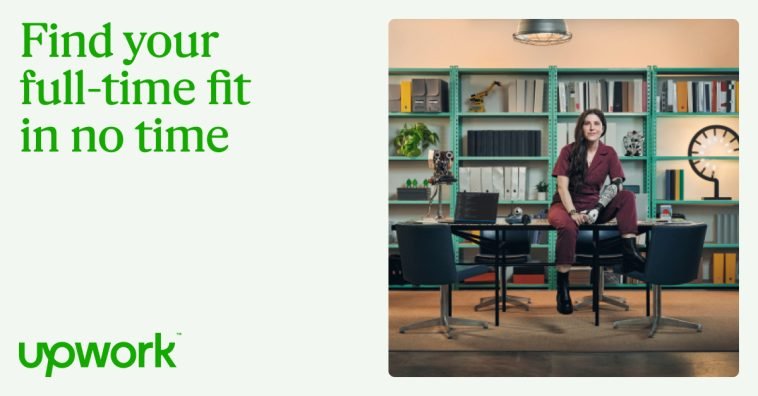Introduction.
Getting noticed on Upwork isn’t easy. With hundreds (sometimes thousands) of freelancers vying for clients’ attention, crafting a standout proposal is essential. But what really makes or breaks a proposal is your response to the client’s specific questions.
These questions aren’t there just for show—they’re designed to gauge your understanding, skills, and how well you’ll fit with their project.
So, knowing how to answer Upwork proposal questions can be the difference between landing a great gig and getting lost in the crowd.
In this post, I’ll walk you through strategies to answer Upwork proposal questions effectively. I’ll cover different types of questions you might encounter, some practical examples, and tips on what clients want to hear.
Why Proposal Questions Matter
When clients post jobs, they’re looking for more than just someone who can technically do the work. They want to make sure you understand their needs, can communicate well, and would be a great fit for their specific project.
By carefully answering their proposal questions, you show your genuine interest, clarify how you’ll handle their project, and highlight what makes you the right choice.
Types of Upwork Proposal Questions and How to Answer Them
1. Experience and Skills-Based Questions.
Many clients will ask about your background and expertise. They want to know if you’ve handled similar projects and if you have the skills they need. It’s not enough to say, “I’m an expert.”
Be specific. Mention similar projects you’ve completed, the results you achieved, or the particular skills you applied that match their requirements.
Example Question: “Do you have experience with eCommerce website design?”
Example Answer: “Yes, I’ve worked on several eCommerce sites over the past three years, including ones for retail brands that saw a 40% increase in sales within six months of launch. My approach combines user-friendly design with strong SEO practices to drive organic traffic, so I’d be happy to bring that experience to your project.”
2. Problem-Solving or Scenario-Based Questions.
Clients often want to know how you’d handle certain challenges. This type of question lets them see your thought process and whether you’d be resourceful in dealing with potential project hiccups.
Example Question: “How would you handle a tight deadline if there were unexpected changes in the project scope?”
Example Answer: “If new requirements come up close to the deadline, I’d start by communicating with you to prioritize essential features. I’d outline what can realistically be achieved within the timeframe, suggest alternative solutions if necessary, and adjust the workflow to keep us on track. In my last project, I handled a similar situation, and we met the deadline by focusing on the most critical tasks first.”
3. Communication and Availability Questions.
Some clients worry about freelancers who disappear halfway through the project. To ease their mind, show them that you’re reliable and can commit to clear communication.
Example Question: “What is your availability for this project, and how do you communicate updates?”
Example Answer: “I’m available to work on this project [mention hours and time zone, if applicable] and can adjust if you need a specific overlap. I usually send progress updates every couple of days and am always available for calls or messages to keep everything transparent and on track.”
4. Budget and Timeline Questions.
Talking about budgets or deadlines can be tricky. But honesty and realistic assessments are key here. Instead of promising the moon, be upfront about what you can deliver in their time and budget constraints.
Example Question: “Can you complete this project for $500 within two weeks?”
Example Answer: “Given the scope you’ve outlined, I believe $500 is feasible, though I’d like to discuss any additional features that might require more time. If any adjustments are needed to meet the deadline, I’ll communicate that early on. My priority is delivering quality work within your budget and timeline.”
Pros and Cons of Responding to Upwork Proposal Questions
Answering Upwork proposal questions thoughtfully has its clear advantages, but it also comes with some challenges.
Pros:
- Shows Attention to Detail: Clients see that you’ve taken time to understand their needs.
- Builds Trust: Thoughtful responses build credibility, showing you’re not just copying and pasting.
- Sets You Apart: A clear and specific answer can help you stand out from generic proposals.
Cons:
- Time-Consuming: Crafting unique answers takes time, especially when applying for multiple projects.
- Risk of Overpromising: It can be tempting to say “yes” to everything. But if expectations aren’t realistic, it can lead to issues later.
Common FAQs About Answering Upwork Proposal Questions
1. Should I always answer every question in the proposal?
Absolutely. Ignoring questions can seem unprofessional or like you haven’t fully read the job description. Even if you don’t have an exact answer, acknowledge the question and respond honestly.
2. What if I don’t have experience in a specific area they’re asking about?
It’s okay to admit when you lack specific experience—just try to relate it to something relevant. For instance, if you haven’t done social media marketing for finance but have for retail, mention the similar skills used in both.
3. How long should my answers be?
Aim for clear, concise answers. One to three sentences is usually a good length, unless the question is complex. Avoid lengthy paragraphs, which might lose the client’s interest.
4. Can I reuse parts of my answers for multiple proposals?
You can reuse parts, especially for common questions like availability or general experience. But always customize each response to address the specific job description and client’s needs.
5. What tone should I use?
Keep it friendly but professional. Avoid slang, but don’t make it overly formal. Clients appreciate responses that feel approachable and sincere.
Conclusion.
Answering proposal questions effectively is one of the best ways to stand out on Upwork. Clients are looking for freelancers who not only have the skills but also understand their specific needs and can communicate clearly.
By being thoughtful, specific, and genuine in your responses, you increase your chances of landing more projects and building better client relationships.
So, next time you sit down to craft a proposal, think about how you’re answering each question. Are you showing your skills, experience, and reliability? Or are you just giving a standard response?
What’s the one thing you think sets you apart when answering Upwork proposal questions?





GIPHY App Key not set. Please check settings